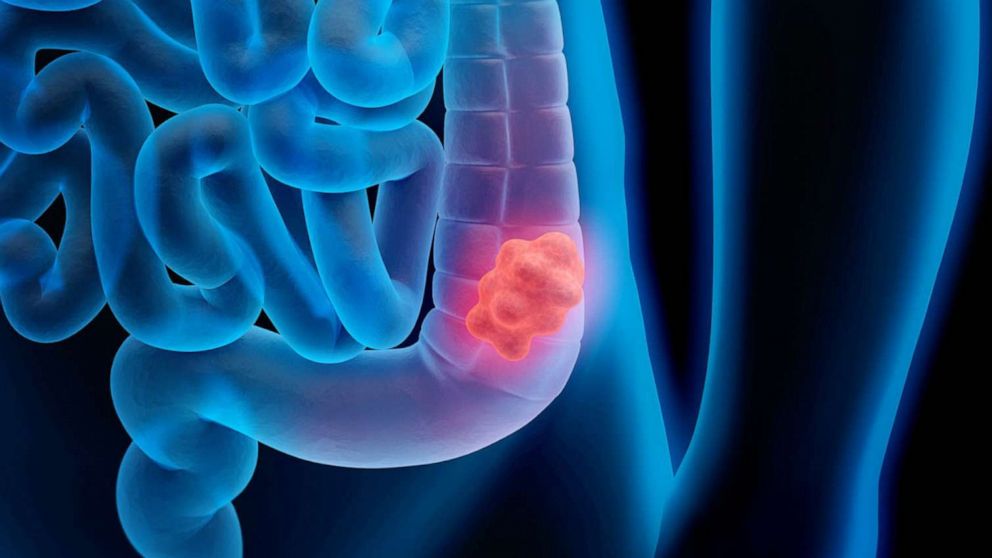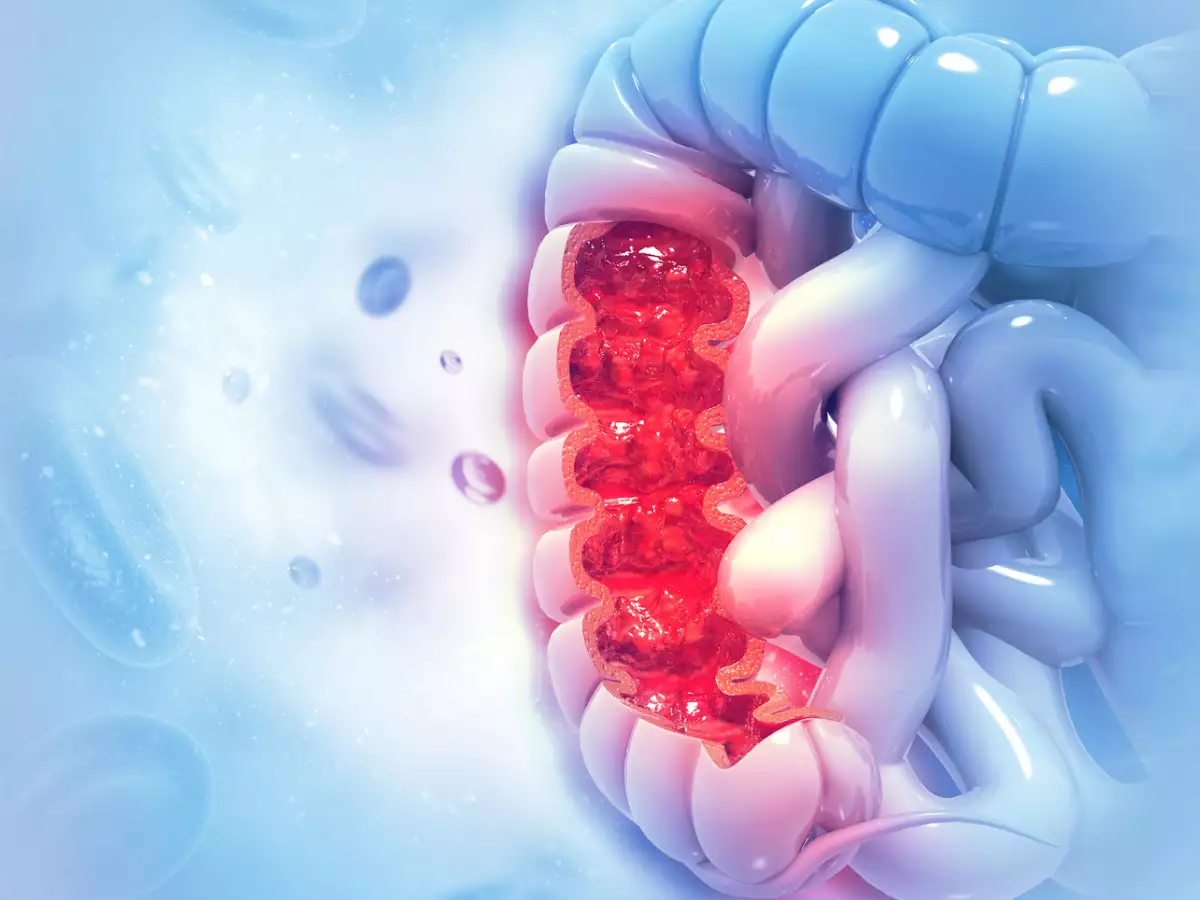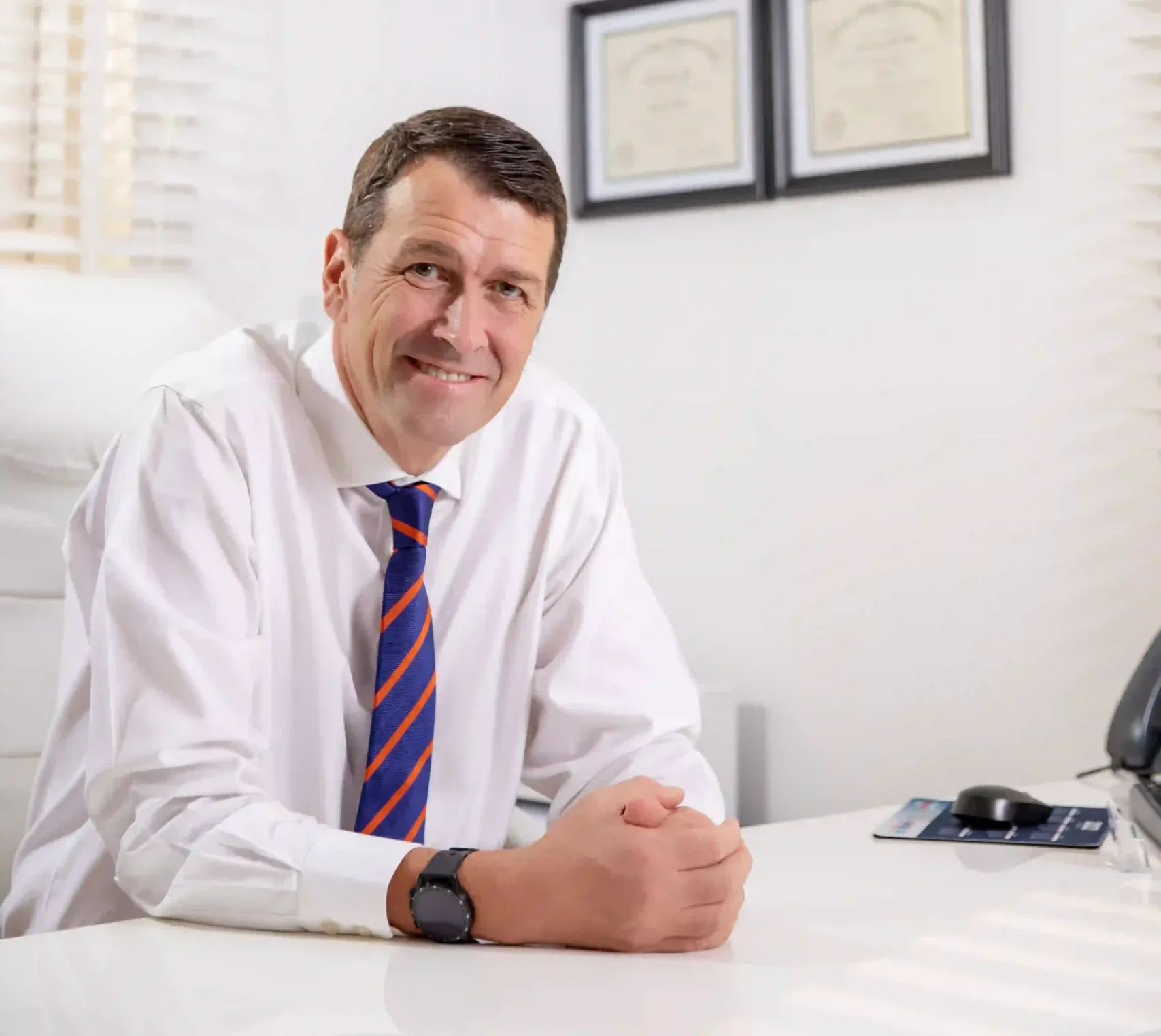CONDITIONS
Colorectal Cancer Treatment In Dubai

Colon cancer (bowel cancer or colorectal cancer) is cancer involving the large intestine or colon. Unfortunately, colon cancer is one of the more common types of cancer – worldwide it is the 3rd or 4th most common type of cancer. It is also one of the leading causes of cancer deaths – although death rates are falling due to better detection and better treatments. Most cases of colon cancer grow from polyps in the wall of the colon or rectum. By looking for and removing polyps before they turn cancerous, many cases of colon cancer can be prevented.

What are colon polyps?
A polyp forms when a cell in the inner lining of the colon undergoes a series of changes and starts to grow and divide faster than the surrounding cells. In time the group of more rapidly growing cells starts to become heaped up causing a small ‘lump’ to form on the inside surface of the bowel. Over time polyps can continue to grow and may develop a stalk and a head which looks like a small mushroom growing from the lining of the colon. Most polyps are completely benign and will never develop further. However, if more mutations occur to one of these rapidly growing cells, there is a small chance that over time the polyp can become cancerous. Polyps grow very slowly and although only a small percentage of polyps will ever turn cancerous, most colon cancers start from polyps.
What are the symptoms of colon polyps?
Almost all small polyps and many larger polyps will not cause any symptoms. Very large polyps may cause blood in the stool, a change in bowel habit, or a sensation of being unable to empty the rectum (tenesmus).
What are the symptoms of colon cancer?
Early bowel cancer can often cause only subtle or minor symptoms and so it is important to be alert for changes. As cancer grows symptoms can become more marked and obvious. Important symptoms to look out for include blood in the stool, a change in bowel habit, tenesmus, tiredness due to anemia, or unexplained weight loss. Make an appointment to speak with Dr Neil if you develop any of these symptoms as colon cancer must be diagnosed as early as possible – the earlier it is found, the more curable the cancer is. Abdominal pain is not usually a symptom except for advanced cancers.
Frequently Asked Questions
Blood tests and stool tests checking for anemia or hidden traces of blood in the poop can sometimes give important clues as to the presence of polyps or colon cancer. If your doctor suspects the possibility of colon cancer or colonic polyps, a colonoscopy is usually needed to check the colon. Polyps can usually be removed during the colonoscopy procedure, preventing them from ever growing and turning cancerous in the future.
Colon cancer is curable – especially if caught early. The treatment of bowel cancer is coordinated between specialist surgeons (colorectal surgeons) and cancer specialists (oncologists). Colon cancer will almost always mean an operation to remove the diseased part of the colon or rectum. People are often worried that they will need a stoma or bag after the operation but this is usually not necessary. Chemotherapy may also be necessary either before or after the operation and an oncologist will be able to talk more about this. Dr Neil works closely with several expert colorectal surgeons and oncologists to ensure the very best care for his patients.
Most colon cancers arise from polyps in the wall of the colon that have continued to grow. Polyps can usually be removed when you have a colonoscopy – and this removes the risk. If you have had polyps in your bowel, there is an increased chance that you will grow more in the future. If you have had a polyp in the colon in the past you should have a follow-up colonoscopy to make sure that you are not growing more. Depending on how many, what type, and how large your polyps were, the repeat colonoscopy should be in either 1, 3, 5, or 10 years after the polyps were found. Dr Neil will be able to advise further regarding this.
Bowel cancer is unfortunately a common cancer and many families have at least 1 family member who has been affected. Having a single distant relative such as a grandparent or an uncle who has had colon cancer probably does not significantly increase your own risk of developing the disease (unless your relative was diagnosed at a young age).
However, if you have more than 1 family member or if a close relative such as your mother, father, brother, or sister had colon cancer you should speak with Dr Neil about whether you should have regular checks to make sure you are not growing polyps cancer.
It is much easier to cure colon cancer if it is caught early. Colon cancer screening aims to help detect bowel cancer at an early stage before it is causing any symptoms. Screening also helps detect polyps. Current US (and UAE) guidelines recommend starting some form of colon cancer screening at the age of 45 years even in the absence of any colon symptoms. The 2 main ways to screen for colon cancer are a stool test to look for hidden blood in the stool every year or a colonoscopy every 10 years. Colonoscopy has the advantage of being able to detect much smaller polyps than the stool test and being able to remove any polyps or take tissue samples from any other problems that are found. If you have a history of previous polyps or colon cancer, or a strong family history of colon cancer you should have more frequent colonoscopy checks.
In the UAE there are not currently any population screening programs for colon cancer. You should speak with Dr Neil or your family medicine doctor if you want to arrange screening.
How can I look after my colon and reduce my risk of bowel cancer?
Prevention is always better than cure. The following tips can lower your risk of developing bowel cancer and – hopefully – help you live a long and healthy life:
- Reduce your weekly intake of processed meat and red meat
- Cut down on alcohol
- Stop smoking
- Lose weight
- Increase your weekly intake of dietary fiber, fruit, vegetables, and whole grains
- Take regular exercise

Are you worried that your bowel symptoms could be due to colon cancer? Do you have a family history of bowel cancer and want advice on screening?Do you want more information about cancer and polyps in the colon? Dr Neil has over 25 years of experience in gastroenterology and has safely performed over 10,000 colonoscopies to check for polyps and cancers
